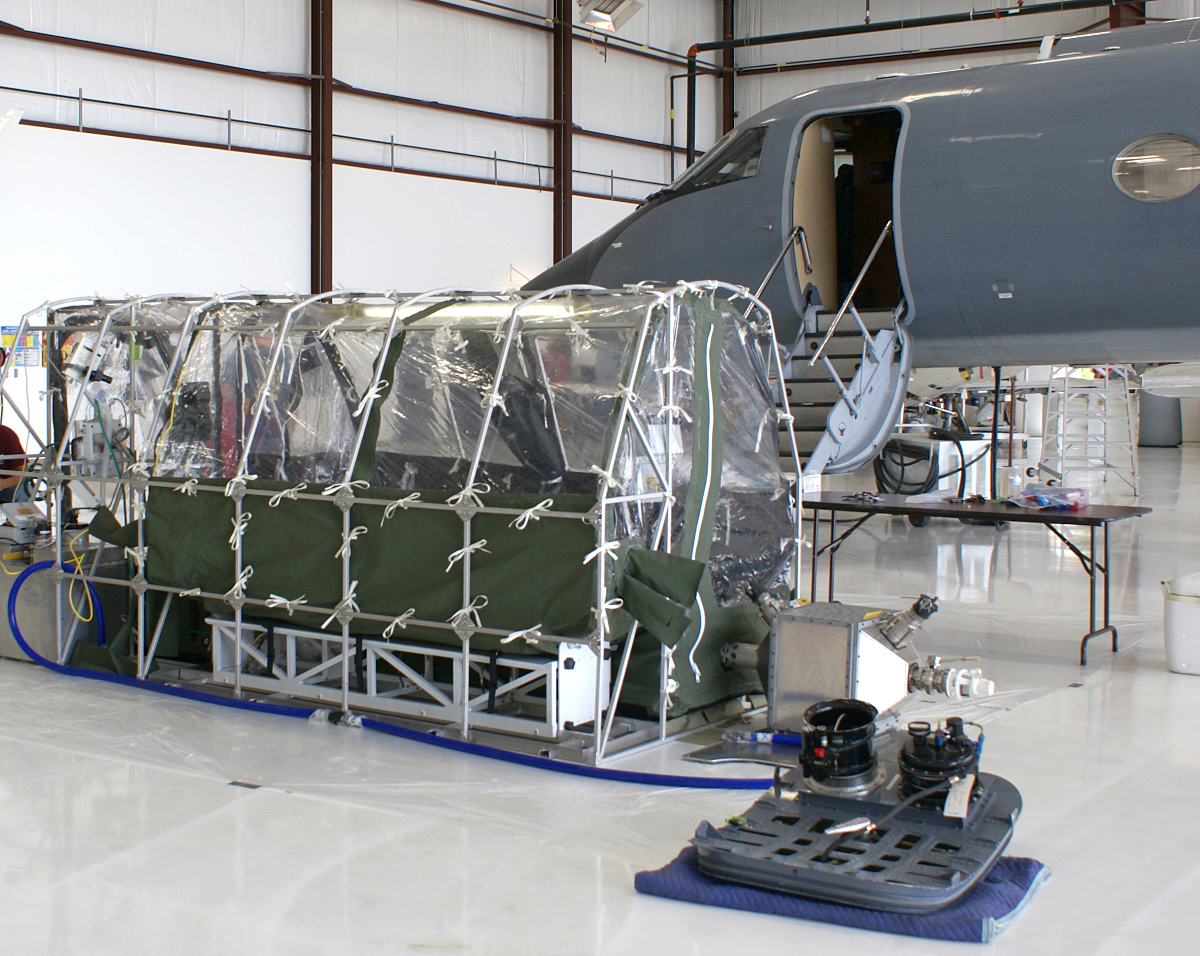Is Ebola the world's worst infectious disease threat? New York/London,: Comparisons between AIDS and Ebola, two deadly diseases, surfaced in the last few months as the Ebola outbreak escalated. Both emerged from Africa and erupted into an international health crisis. And both have been a shocking reminder that mankind's battle against infectious diseases can take a sudden, terrible turn for the worse. In his three decades in public health, the only thing like Ebola has been the AIDS epidemic, said Dr Tom Frieden, head of the US Centers for Disease Control and Prevention. "And we have to work now so this is not the world's next AIDS," he told a meeting of the world's economic leaders in Washington last week. But Ebola is not expected to ever be in the same league as AIDS in terms of infections and deaths, said Dr Anthony Fauci, director of the National Institute of Allergy and Infectious Diseases. "There is no one that imagines that we're going to see tens of millions of people infected with Ebola," said Fauci, a longtime leader in the fight against AIDS. This year's Ebola outbreak - the largest ever - has killed more than 4,500 people in West Africa. AIDS kills more than a million per year on the continent. Both diseases are caused by viruses and spread through contact with bodily fluids, not the air, but health experts say the epidemics are more different than they are similar. Ebola can be more infectious than HIV, according to Dr Bruce Ribner, a physician involved in the care of four Ebola patients treated so far at Emory University Hospital in Atlanta. Indeed, a patient in the throes of Ebola can have 10 billion viral particles in a fifth of a

Doctors and staff participate in a preparedness exercise on diagnosing and treating patients with Ebola virus symptoms, at the Ronald Reagan UCLA Medical Center in Los Angeles. (AP Photo)
teaspoon of blood - far more than the 50,000 to 100,000 particles seen in an untreated patient with the AIDS virus. Even the skin of an Ebola patient can be crawling with the virus, according to Ribner. Still, there are reasons to be more optimistic about Ebola than about HIV, the virus that causes AIDS. Read: Don't succumb to Ebola 'hysteria', urges Obama as panic grows, Ebola was actually discovered before HIV. First identified in 1976 and named after a river in Congo, the virus has caused periodic outbreaks in Africa ever since. While a test was made to diagnose it, work on vaccines and treatments has been limited and difficult. Ebola did not become an international epidemic until this year, when it unexpectedly mushroomed in West Africa. The rapid increase in cases - particularly in Liberia and Sierra Leone - led to the CDC's worst-case-scenario estimate that there could be as many as 1.4 million cases in those two countries alone by January. But at least scientists had a running start against Ebola. The beginning of the AIDS epidemic was more challenging. When clusters of cases were first reported in 1981, health officials were facing a mysterious illness with no known cause. "We didn't know it was a virus. We had no idea what was going on," recalled David Celentano, who was a young AIDS researcher in the 1980s and is now at Johns Hopkins University's school of public health. Scientists did not isolate HIV until a couple of years later. A test for the virus wasn't available until 1985. There's still no vaccine, but medications have allowed those infected to live longer and healthier lives. In those first few years, AIDS was generally perceived as occurring mainly in gay men, intravenous drug users and Haitians who had recently entered the United States. "There was kind of a sense that 'it's only happening in certain places, and it only happens to certain people,'" said Dr
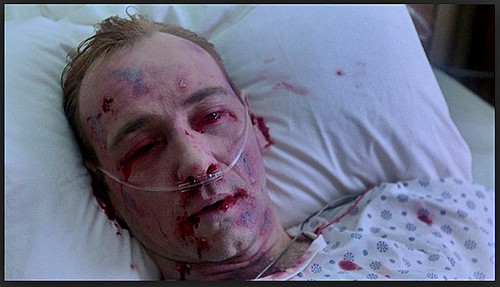
Wafaa El-Sadr, a Columbia University professor who as a young physician treated AIDS patients in New York City. It wasn't until the mid-1980s when public anxiety and fear about the disease in the US really began to reach the levels seen today with Ebola. In 1985, an Indiana school barred a boy with hemophilia named Ryan White because he was infected through a blood transfusion. Later that Americans favored the quarantining of AIDS patients and 15 percent supported tattooing people who had year, a national poll showed more than half of AIDS. Beginning in 1987, HIV-positive travelers were banned from entering the country. The rule was changed in January 2010. Public anxiety about Ebola took flight in the last month with the first case diagnosed in the U.S. in a man who traveled to Dallas from Liberia. In the Dallas area, attendance dropped at schools where children attended who had reportedly been in contact with the man, Thomas Eric Duncan. At the CDC, calls and emails to the federal health agency spiked to more than 800 from a few dozen daily asking questions about the disease. This past week, screening of travelers from West Africa began at five US airports. The international response also has been accelerated with Ebola, compared to AIDS. The United Nation's UNAIDS program didn't begin until 1995. Some experts feel real momentum in the international campaign didn't occur until 2000. The Ebola response also has been faulted as dangerously slow, but it's been much faster than what happened with AIDS. In the last month - about six months after the epidemic in West Africa first began - officials from the United State and other nations have met to ratchet up an international response with money, troops and supplies. There's one more big difference that ironically makes Ebola more dreadful to many people but possibly easier for health workers to one day beat back, said Dr. James Curran, dean of Emory University's school of public health. The scariest thing about the Ebola virus is how quickly and dramatically it kills. Initial infection to ghastly death is only a matter of weeks. Source: Hindustan Times. Ebola countries to get $450 million in financing: A new private sector initiative announced Wednesday will provide at least $450 million in commercial financing to the three West African countries hardest hit by Ebola to promote trade, investment
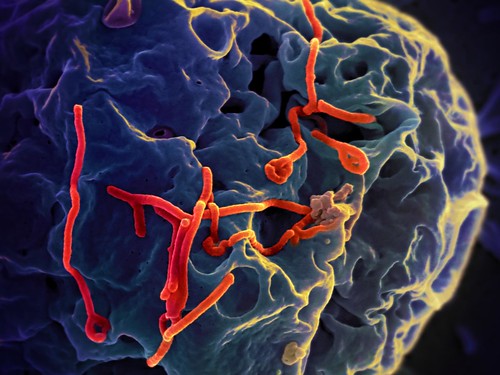 and employment. The International Finance Corporation, which is part of the World Bank Group, announced that the package will include $250 million in rapid response projects and at least $200 million in investment projects to support the economic recovery of Liberia, Sierra Leone and Guinea after the Ebola outbreak is controlled. The announcement coincides with the U.N. Development Program's release of a study on the socio-economic impact of the outbreak, which found that the governments of the three countries need $328 million to be able to function at pre-crisis levels. The study said the shortfalls are caused by increased spending to tackle Ebola and the slowdown of economic activity in fields such as tourism, mining and trade. "Ebola is a humanitarian crisis first and foremost, but it's also an economic disaster for Guinea, Liberia and Sierra Leone," World Bank President Jim Yong Kim said in a statement. "That's why in addition to our emergency aid, we will do all we can to help support the private sector in these countries to build back their business." IFC, the largest global development institution that focuses exclusively on the private sector, said its initiative includes a $75 million Ebola Emergency Liquidity Facility to fund critical imports for the Ebola-affected countries, including energy, food and agricultural commodities and manufactured goods. IFC said its board approved the rapid response program last week. It will initially be available to six IFC client banks and could be expanded to additional banks. Jin Yong Cai, IFC executive vice president and CEO, said the corporation "will find and create opportunities to encourage private investors to play a large role in the recovery of markets directly and indirectly affected by the ongoing Ebola outbreak in West Africa." The UNDP study found that because of Ebola, government expenses have risen about 30 percent in Liberia, Sierra Leone and Guinea, and fiscal deficits in the three countries are rising. In addition, Liberia has sacrificed $20 million worth of infrastructure improvements and Sierra Leone has sacrificed $16 million worth since the beginning of the crisis, it said. In Liberia, half the mining and agricultural concessions have reduced their activities, UNDP said. In northeast Guinea, exports of fruit and vegetables to neighboring countries have dropped 90 percent, and in Sierra Leone's capital, Freetown, nearly all bars, restaurants and nightclubs have closed. That has forced the country's largest brewery to scale down operations, culminating in a loss of 24,000 jobs in the supply chain. The financial constraints have forced the three countries to resort to domestic and international borrowing, and they have already taken financial packages from the International Monetary Fund and the World Bank, UNDP said. UNDP's Africa regional director, Abdoulaye Mar Dieye, said the crisis has taken a toll on budgets and reduced the ability of the three governments to invest in critical areas such as health and education. "We need to make sure that the Ebola outbreak does not lead to socio-economic collapse," Dieye said in a statement. "These countries were heavily reliant on aid but beginning to see healthy rates of economic growth and opportunities for business, economic diversification and domestic resource mobilization. We need to avoid a situation where these countries increase their dependence on external sources of financing." Source: Hindustan Times. Bill Gates to Donate $50 Million to West Africa to fight Ebola: The Bill & Melinda Gates Foundation is donating $50 million (about N8 billion) to West Africa to assist in the fight against Ebola. The  foundation will be making the donation via the United Nations and other international organizations working to stop the outbreak, International Business Times reports. A part of the funds will also go towards funding medical firms that are researching treatments, technologies, and vaccines for the disease. Sue Desmond-Hellmann, CEO of the Gates Foundation spoke about the donation, stating, “we are working urgently with our partners to identify the most effective ways to help them save lives now and stop transmission of this deadly disease. We also want to accelerate the development of treatments, vaccines and diagnostics that can help end this epidemic and prevent future outbreaks.” Source: Article. Google Will Donate $2 For Every $1 Given By Public To Fight Ebola: Google’s aim is to raise $7.5
million to give nonprofits working in West Africa. Google said Monday it plans to donate $2 for every dollar donated by the public to fight Ebola. The campaign was
funds will be distributed to four nonprofits working in West Africa. Source: Article. Mark Zuckerberg donates $25million to help fight Ebola announced after Google and CEO Larry Page's foundation donated $25 million to fight the global Ebola crisis.Google said it plans to raise an additional $7.5 million. The 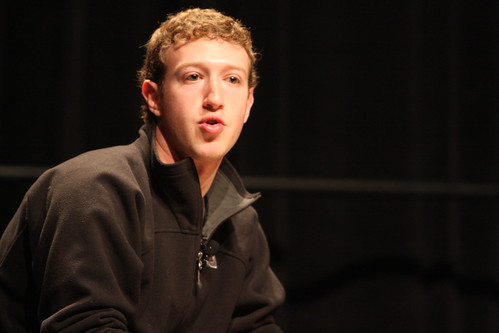 Facebook founder and the 13th richest person in the world, Mark Zuckerberg, estimated to be worth over $30billion just announced on his Facebook page that he's donating $25 million to the Centers for Disease Control Foundation to help fight Ebola. Continue to read the statement he released... "Priscilla and I" are donating $25 million to the Centers for Disease Control Foundation to help fight Ebola. The Ebola epidemic is at a critical turning point. It has infected 8,400 people so far, but it is spreading very quickly and projections suggest it could infect 1 million people or more over the next several months if not addressed. We need to get Ebola under control in the near term so that it doesn't spread further and become a long term global health crisis that we end up fighting for decades at large scale, like HIV or polio. We believe our grant is the quickest way to empower the CDC and the experts in this field to prevent this outcome. Grants like this directly help the frontline responders in their heroic work. These people are on the ground setting up care centers, training local staff, identifying Ebola cases and much more. We are hopeful this will help save lives and get this outbreak under control. Source: Article. Ebola response: who has donated the most? The UN secretary-general Ban Ki-moon has launched an urgent appeal to the international community The UN secretary-general Ban Ki-moon has launched an urgent appeal to the international community for funds to help fight
the Ebola epidemic in West Africa. Ban called on those countries "who really have capacity" to provide financial and other logistical support, including healthcare workers and medical equipment. Over 4,500 people in Sierra Leone, Guinea and Liberia have now died from the disease and the international community is being criticised for its failure to respond adequately to the crisis. Health experts argue that the outbreak could have been contained if more assistance had been given months ago. Kofi Annan has said he is "bitterly disappointed" with the lack of action.
"If the crisis had hit some other region it probably would have been handled very differently," former UN secretary-general Kofi Annan told BBC Newsnight. "In fact when you look at the evolution of the crisis, the international community really woke up when the disease got to America and Europe." Currently, the US and the World Bank lead the way in international donations, with the UK the fifth largest donor. Private donors also make up a large proportion of the donations. These include a $50 million pledge from Bill and Melina Gates and a $25 million donation from Facebook founder Mark Zuckerberg. President Barack Obama has stressed the need for a faster and more robust response to the outbreak, calling on world leaders to pledge more to stop the ongoing humanitarian crisis. China has faced criticism for the size of its pledge, with many suggesting it should contribute in a way that befits a rising world power. Cuba, meanwhile has been widely praised for its response to the outbreak. The small island nation has the single biggest medical force on the Ebola frontline in Sierra Leone, The Guardian reports. Source: Article, Recovered Ebola patient isolated at India airport: NEW DELHI (AP) — A 26-  year-old Indian man who recovered from Ebola in Liberia has been placed in isolation at the New Delhi airport after traces of the virus were found in his semen, India's Health Ministry said Tuesday. The ministry said three blood samples from the man tested negative for the disease, which means he is considered recovered according to standards set by the World Health Organization and the U.S. Centers for Disease Control and Prevention. The CDC advises Ebola survivors to avoid sex for three months or use condoms because the virus can continue to be found in semen for seven weeks after recovery from the disease. The ministry said the move to isolate the man was taken "as a matter of abundant caution" and he would continue to be held under isolation at a special health facility at the airport until his body fluids test negative. "The person concerned is a treated and cured case of Ebola virus disease," it said in a statement. "All necessary precautions are being taken at the isolation facility. This would rule out even the remote possibility of spread of this disease by the sexual route." When the man arrived at the New Delhi airport on Nov. 10, he carried documents from Liberia confirming he had successfully undergone Ebola treatment and had been declared free of any symptoms, the Health Ministry said. He was placed in quarantine as a precautionary measure as authorities tested his blood over the next several days. Although his blood tests were clear, authorities decided to test his semen before releasing him from quarantine. Those tests showed traces of the virus. There have been no Ebola cases reported in India or throughout Asia, but there are fears that an outbreak could spread quickly in a region where billions live in poverty and public health systems are often very weak. Early symptoms of Ebola include fever, headache, body aches, cough, stomach pain, vomiting and diarrhea, and patients aren't contagious until those begin. The virus requires close contact with body fluids to spread so health care workers and family members caring for loved ones are most at risk. Ebola has killed more than 5,000 people in the west African countries of Liberia, Sierra Leone and Guinea. Source: theet.com. Ebola to spread globally 
European Union says ‘increased’ effort needed to tackle Ebola
sans exit screening: Three Ebola-infected travellers from the worst affected West African countries Liberia, Sierra Leone and Guinea are predicted to depart on an international flight every month, if no exit screening were to take place, according to new modelling research published in the Lancet. Dr Kamran Khan at St. Michael’s Hospital in Toronto, Canada, and colleagues analysed 2014 worldwide flight schedules and historic flight itineraries of passengers from 2013 to predict expected population movements out of Guinea, Liberia, and Sierra Leone. They also used WHO Ebola virus surveillance data to model the expected number of exported Ebola virus infections and to determine how useful air travel restrictions and airport departure and arrival screening might be in controlling the spread of the deadly virus. Meanwhile, European Union foreign ministers agreed on Monday to step up efforts to contain Ebola to prevent it becoming a global threat, including ensuring proper care for international health workers. “A united, coordinated and increased effort is needed in order to contain the outbreak,” the 28 ministers said in a statement, adding that affected and neighbouring countries must be given “the necessary and appropriate assistance”. Their conclusions will be taken up Thursday and Friday at an EU leaders summit in Brussels where the fight against Ebola will once again dominate proceedings. The foreign ministers agreed the European Commission should “guarantee appropriate care for international health responders,” including the option of medical evacuation to ensure frontline staff get the best care for a disease which has neither vaccine nor cure. The ministers also said there was a need to set up a pool of volunteer health experts from EU states “for quick and targeted deployment in health crises”. Additionally, the EU should target aid to affected countries so as to boost their own defences against the disease, the statement said. Also, the World Health Organisation on Monday declared Nigeria officially Ebola-free, after 42 days or two incubation periods without any new confirmed cases of the deadly virus. “The virus is gone for now. The outbreak in Nigeria has been defeated,” WHO country representative Rui Gama Vaz said in Abuja. Source: The Asian Age, NY doctor free of Ebola virus, to be discharged: An American doctor who became the first person in
New York City to be diagnosed with Ebola, is free from the virus and will be discharged from hospital on Tuesday, officials said. They also stressed that he poses no health risk to the public. Craig Spencer, 33 had treated Ebola patients in Guinea and returned to the US last month after which he was diagnosed with having the deadly virus, becoming New York city's first diagnosed case. He was being treated at the Bellevue Hospital since October 23 and will now be released after being cured of the disease. "After a rigorous course of treatment and testing, Craig Spencer, the patient admitted and diagnosed with Ebola Disease Virus at HHC Bellevue Hospital Center has been declared free of the virus. Spencer poses no public health risk and will be discharged from the hospital Tuesday, November 11," the NYC Health and Hospitals Corporation said in a statement Monday. Spencer was among the handful of patients who had been treated at various US hospitals for Ebola. The only case of death from Ebola in America was that of Liberian national Thomas Eric Duncan, who died on October 8 in Dallas. Two nurses who came into contact with Duncan and then tested positive for Ebola received treatment and are now free of the virus. Other Ebola patients, including American aid workers and a TV cameraman, have also recovered. Spencer had been working with Doctors Without Borders in Guinea and returned to New York City through JFK Airport on October 17. He had been subjected to an enhanced screening for all returning travelers from countries most affected by the Ebola epidemic. He, however, reported a fever of 100.3 degrees to local health officials for the first time on October 23 and was immediately transported by a specially-trained Hazardous Material Tactical Units wearing Personal Protective Equipment to Bellevue. In the days since he returned, Spencer had taken the subway and visited a bowling alley in Brooklyn. His girlfriend and a couple of friends had been quarantined. Earlier this month, the city's health department had said that Spencer's condition had improved to 'stable' from 'serious but stable'. Eminent Indian-American physician Ramanathan Raju is at the helm of New York City's response team put in place to tackle Ebola. According to latest estimates by the World Health Organisation, there have been 13,268 reported Ebola cases in eight affected countries since the outbreak began, with 4,960 reported deaths. Source: Article. Ebola: should doctors be forced to treat infected patients?: The Ebola outbreak is forcing the global medical community to consider the "previously unthinkable"; withholding emergency treatment from infected patients. Due to the risk of transmission, some hospitals in the US are currently reviewing their policies on the treatment of patients with the virus, Reuters reports. The risk became apparent after two nurses were infected while caring for a patient in Texas. This comes as nurses in Canada are told they will face disciplinary action if they refuse to treat a patient with Ebola, according to the Canadian Broadcasting Corporation. In the UK, even though healthcare workers "may be anxious "about treating patients with Ebola, they are duty-bound to do so, according to the MDU, the country's leading medical defence organisation. The treatments being discussed in the US debate could be life-saving but are often invasive. They includes CPR, inserting breathing tubes and dialysis. "To have a blanket refusal to offer these procedures is not ethically acceptable," said Dr G Kevin Donovan, director of the bioethics centre at Georgetown University in Washington. Dr Nancy Kass, a bioethicist at Johns Hopkins Bloomberg School of Public Health, argues that as long as healthcare workers are provided with adequate protection, they should have to treat the patient. But others say that such measures go beyond a healthcare worker's professional obligations and they should have the right to refuse to offer treatment, as it would put them at risk. "The idea that a doctor would stick to his post during an epidemic, that's not part of the Hippocratic Oath," says medical historian Dr Howard Markel. "If you feel your life is at risk you don't have to stay and provide care." Laurence McCullough, a clinical ethicist at Baylor College of Medicine says the issue "reminds us that there are justified limits on the risk to health and life that health care professionals are expected to take in the care of patients". Rushing into a quarantined hospital room to administer such treatment could cause lapses in safety procedures, some argue, saying it would be both unsafe and impractical. "To provide timely resuscitation, hospitals would need staff workers suited in protective gear around the clock," argues Lawrence Altman in the New York Times. Regardless of what each healthcare system decides, policies must be put in place beforehand, warns Dr Fins, chief of medical ethics at Weill Cornell Medical College. "Confronting this problem in the heat of a cardiac arrest is not the right time to be thinking about it." For further concise, balanced comment and analysis on the week's news, try The Week magazine. Source: The Week UK. New York on alert over 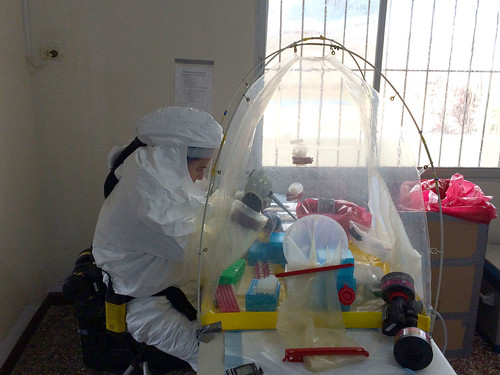 \ \first Ebola case: Yashwant Raj, Washington, A New York doctor who recently returned from Guinea tested positive for Ebola on Thursday becoming the fourth case yet in the United States. Craig Spencer, 33, was treating Ebola patients in Guinea, one of three west African nations hit the hardest by the outbreak. He has been put in an isolation chamber at Bellevue Hospital, one of the health facilities designated for treating Ebola cases for all of New York state and the city. New York city health authorities also dispatched disease detectives “to actively trace all of the patient’s contacts to identify anyone who may be at potential risk”. President Barack Obama also held meetings to discuss measures being taken in view of the case. Spencer’s fiancee has been put under observation in an isolation chamber at the same facility, and local media reports said authorities were in touch with his friends. The US has had four cases of Ebola so far — the first three were all in Texas, starting with Thomas Duncan, a Liberian man who died because of delayed medical attention. The other were nurses who were part of the team that was treating Duncan. The US has started screening travelers from Guinea, Sierra Leone and Liberia but pressure is mounting on Obama administration to ban travel to and from these countries completely. Spencer, who was working with Doctors without Borders, arrived on October 14. Though he tested positive for Ebola, CDC was conducting another test to confirm it. Source: Hindustan Times, Indian-American doctor at helm of Ebola response team: An eminent Indian-American physician has been appointed to lead New York's medical response team to tackle Ebola after another doctor tested positive for the deadly virus. Dr Ramanathan Raju was appointed earlier this year by Mayor Bill de Blasio as New York City's Commissioner of Health and Hospitals Corporation (HHC), a network which has a dozen hospitals. Raju assured city residents that focus was on providing "excellent care" to the patient and to protect hospital employees looking after him. Acknowledging the Indian-American physician for his leadership, the mayor said here today that Raju efficiently runs the hospital system and is "prepared" to deal with the health emergency. Craig Spencer, 33, is a doctor who treated Ebola patients in Guinea and returned to the US last week. He tested positive for Ebola and is currently "hospitalised in isolation" at the Bellevue Hospital. Bellevue Hospital is one of eight New York State hospitals that Governor Andrew Cuomo has designated to treat Ebola patients. The Mayor said Bellevue Hospital is Raju's "flagship" as he outlined the city's preparedness to deal with the crisis. Addressing reporters, Raju said that in his 30 years of working in the health care field, he has "never seen such unprecedented collaboration . Source: Hindustan Times. Ebola: blood serum leads the global race to find a cure: Serum extracted from the blood of Ebola victims who survived the virus could be made available to patients in Liberia in the coming weeks, according to the World Health Organization (WHO). The body is fast tracking several experimental drugs and vaccines to be ready by January, according to the BBC There is currently no proven Ebola vaccine or cure, but several pharmaceutical companies are racing to develop safe and effective methods of treating and preventing the disease. What is blood serum and how does it work? Serum is part of blood plasma and, in this case, is taken from a patient who has recovered from Ebola as it contains essential antibodies that can fight the virus. It has proven effective in earlier outbreaks, but the WHO has previously been hesitant to use it widely until stricter safety controls were introduced. Healthcare workers warn that the blood needs to be screened carefully for diseases such as HIV and the serum only be administered by health care professionals. When will it be ready? The serum has already been used to treat infected healthcare workers. Earlier this month, William Pooley, the British nurse who recovered from the virus donated his blood to infected healthcare workers in Texas. The WHO expects the serum to be more widely distributed in Liberia, the country worst affected by the outbreak, "within weeks". Vaccines: Human trials are currently underway for several different vaccines developed by the large pharmaceutical companies GlaxoSmithKline and NewLink Genetics as well as the US National Institute of Allergy and Infectious Diseases. Scientists hope that patients will react to the small amount of the virus and develop immunity against it. When will they be ready? The latest announcement from the WHO suggests that a vaccine could pass safety and efficacy tests as early as January next year. However, just last week, GlaxoSmithKline said their vaccine would not be ready in time for the current outbreak as safety trials would not be completed until the end of 2015. ZMapp: The experimental drug is made up of a cocktail of antibodies harvested from an infected animal's blood and grown in specially-modified tobacco leaves. It works by stopping the virus from entering and infecting new cells. It has been used to treat dozens of healthcare workers, many of whom have gone on to make a full recovery. However, doctors say it is too early to know whether the drug is effective or safe in the long-term. When will it be ready? ZMapp takes a long time to produce even in small quantities and all available doses have now been distributed, according to its manufacturers. Supplies of the drug "will not be sufficient for several months to come" the WHO warned recently. TKM-Ebola: Developed by a Canadian pharmaceutical company, the drug works by interfering with the virus's genetic code and stopping it from producing disease-causing proteins. When will it be ready? Human trials were halted earlier this year over safety concerns, but the company recently announced that the US Food and Drug administration had partially lifted the ban, raising hopes that the drug could be made available in the near future. Source: The Week UK. Ebola virus factfile: What is the Ebola virus and  what are the symptoms? The World Health Organisation describes Ebola as "a severe acute viral illness". Early symptoms are similar to malaria and include the sudden onset of fever, intense weakness, muscle pain, diarrhoea, vomiting and both internal and external bleeding. There are five known strains of the virus, the one currently spreading across West Africa is known as the Zaire Ebola virus and is one of the most dangerous. Patients who do not survive the disease most often die from blood loss, organ failure or shock. Where did it come from? Scientists believe it was initially present in wild animals such as fruit bats living in tropical rainforests in equatorial Africa. The disease spread to humans when they came into contact with the organs, blood or other bodily fluids from infected animals through hunting. How is it spread? Ebola is highly infectious. It can be transmitted through contact with the blood, bodily fluids and organs, including skin, of sufferers or through indirect contact with environments contaminated by the disease. The disease can also have a long incubation period, up to three weeks, which allows it to spread rapidly before diagnosis and quarantine can take place. Is there a cure? There is no known cure or vaccine for the virus and the disease kills between 25 and 90 per cent of its victims. The fatality rate of the current strain appears to be roughly 70 per cent, according to the latest WHO figures. The only routine treatment doctors can currently offer is palliative care such as rehydration and pain relief. However, there are various experimental treatments and vaccines currently in development, most notably the zMapp drug which has been given to several healthcare workers who have contracted the disease. It's effectiveness and long-term safety is yet unknown. What happens to people who survive the disease? "There is strong epidemiological evidence that once an individual has resolved an Ebola virus infection, they are immune to that strain," according to Dr Bruce Ribner, director of the infectious disease unit at Emory University Hospital in the US. Doctors believe that the antibodies present in a patient's blood could protect them from that virus, but warn they would still be susceptible to other strains. Source: The Week UK. Don't succumb to Ebola 'hysteria', 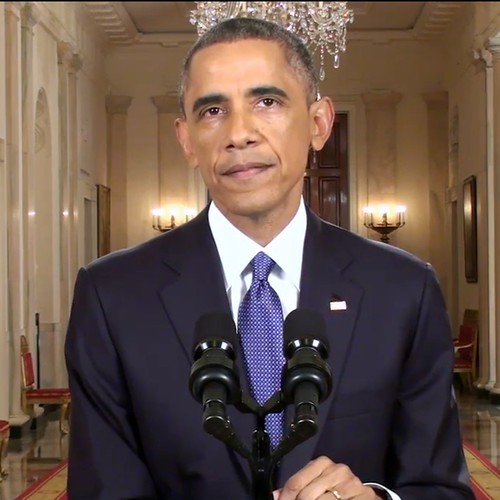
urges Obama as panic grows: US President Barack Obama urged against "hysteria or fear" Saturday in the face of a growing Ebola crisis, as the United Nations spoke of an "encouraging" response to its funding appeal. The worst-ever outbreak of the deadly virus has so far killed more than 4,500 people, mainly in three West African nations at the epicenter of the outbreak: Guinea, Liberia and Sierra Leone. Obama's warning came a day after the World Bank warned the battle against the disease was being lost and as the US president named an "Ebola czar" to coordinate Washington's response. A UN appeal for nearly $1 billion to fight the spread of the disease has so far fallen short, but a spokesman told AFP more money was coming in daily. Doctors and staff participate in a preparedness exercise on diagnosing and treating patients with Ebola virus symptoms, at the Ronald Reagan UCLA Medical Center in Los Angeles. Out of $988 million requested a month ago, the UN said Saturday $385.9 million had already been given by a slew of governments and agencies, with a further $225.8 million promised. "It has been encouraging to see the amount and the speed with which these amounts have been committed," said Jens Laerke, spokesman for the UN's humanitarian office (OCHA). "To be honest, I don't recall during my time at OCHA that we have had such a response within a month for a billion-dollar appeal." Nevertheless, Laerke said, this wasn't a sign the need for donations had passed. "Nobody's smiling in this crisis, so I'm not going to go out and clap my hands and say everything is going fine, because it's not," he told AFP. Panic growing: Meanwhile, as panic grows even far from the outbreak's epicenter, Obama counseled patience and perspective. "This is a serious disease, but we can't give in to hysteria or fear -- because that only makes it harder to get people the accurate information they need. We have to be guided by the science," Obama said in his weekly address to the nation. Friday saw a number of false alarms in the United States as fears grow, including at the Pentagon, where an entrance was closed after a woman vomited in a parking lot. US authorities later found no evidence that she had contracted Ebola. "We have to remember the basic facts," Obama said Saturday. Doctors examines a patient in a preparadness exercise on diagnosing and treating patients with Ebola virus symptoms, at the Ronald Reagan UCLA Medical Center in Los Angeles. The United States -- where a Liberian man died from Ebola on October 8 and two American nurses who treated him have tested positive -- was not seeing an "outbreak" or "epidemic," Obama stressed. More "isolated" cases in the country were possible, he conceded. "But we know how to wage this fight." The US president played down the idea of a travel ban from West Africa. "Trying to seal off an entire region of the world -- if that were even possible -- could actually make the situation worse." Travelers from affected regions would simply change their travel plans to evade screening, he said, making Ebola even harder to track. 'Losing the battle': Obama's call for calm was in stark contrast to World Bank chief Jim Yong Kim, who warned Friday: "We are losing the battle." He blamed a lack of international solidarity in efforts to stem the epidemic. "Certain countries are only worried about their own borders," he told reporters in Paris, as leaders in Washington and beyond grapple for a coordinated response to the outbreak. Airports in several countries, including in the United States, have launched enhanced health checks in a bid to stop the spread of Ebola, although health experts -- including in the US -- have expressed doubts about their effectiveness. France on Saturday started carrying out health checks on Air France passengers arriving from Guinea, where the epidemic began in December, while a union of the airline's flight attendants called for a halt in flights from Conakry altogether. The United States, Britain and Canada have already launched screenings at airports for passengers from Ebola-ravaged zones. The EU is reviewing the matter. As of October 14, 4,555 people have died from Ebola out of a total of 9,216 cases registered in seven countries, the World Health Organization says. Symptoms of Ebola include fever, headache, diarrhea, vomiting and in some cases bleeding. Even if a person is infected, the virus can only be passed on once symptoms appear and only through direct contact with their bodily fluids, such as mucus, semen, saliva, vomit, stool or blood. There is no licensed treatment or vaccine for the contagious disease, but several countries are trying to develop an effective vaccine. Source: Hindustan Times. Why is North Korea so scared of Ebola: North Korea has put "draconian" new measures in place to contain the spread of Ebola, despite the fact that no incidents of the disease have yet been reported in the country. North Korean officials announced a ban on all tour groups on 23 October and began refusing all
Analysts say North Korea's reaction to Ebola appears excessive 'even by the standards of the most authoritarian regime'
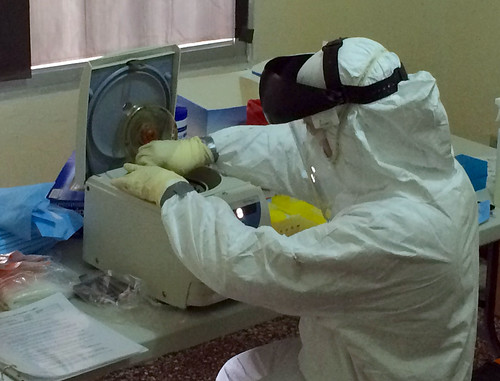 say that due to North Korea’s poor medical facilities, the country may in fact be well advised to put advanced protocols in place to protect against potential outbreaks. Hazel Smith, an expert on North Korea at the University of Central Lancashire, told The Guardian: "I understand the logic of what they are doing, even if it seems extreme … If there was someone with Ebola coming in, it wouldn’t be easy to avoid contagion: they have problems with electricity, running water and disinfectants." Other analysts believe that the measures are a form of public reassurance. The official announcements of the past couple of weeks "are sending a message to the population that it is taking steps to protect them," Keith Luse, executive director of the Washington-based National Committee on North Korea, told NPR. Should Ebola be Pyongang’s greatest concern? Despite the hysteria, many analysts say that North Korea has more pressing medical issues than Ebola. According to a study published in the Lancet in April, North Koreans suffer high rates of malnutrition and have "one of the highest incidence rates [of tuberculosis] outside sub-Saharan Africa." Levels of stunting and underweight among North Korean children come "close to the worst-performing African countries." North Korean officials 'executed for watching soaps': 29 October, Kim Jong-un has reportedly ordered the execution of up to 50 senior North Korean officials so far this year in an attempt to consolidate power. At least ten members of the ruling Workers' Party have been killed by firing squad for watching South Korean soap operas, bribery or womanising, according to the Daily Telegraph. Many of those killed were affiliated with the North Korean leader's uncle, Jang Song-Thaek, who was executed last year and commentators believe this latest round of purges was an attempt to erase the remaining influence he held. "Kim Jong Un is trying to establish absolute power and strengthen his regime with public punishments," Yang Moo Jin, a professor at the University of North Korean Studies in Seoul told Bloomberg. Last week, the disappearance of six senior officials in Pyongyang prompted speculation that a major purge was underway. The details of the latest executions were revealed in a report by the South Korean intelligence service. It also stated that North Korea is continuing to expand the capacity of its political prison camps. The camps are thought to house more than 100,000 prisoners, including children, in subhuman conditions, with many imprisoned simply for being related to someone who has spoken out against the regime. However, Pyongyang continues to deny their existence. For further concise, balanced comment and analysis on the week's news, try The Week magazine. Source: The Week UK. WHO admits to botching efforts to stop Ebola spread: 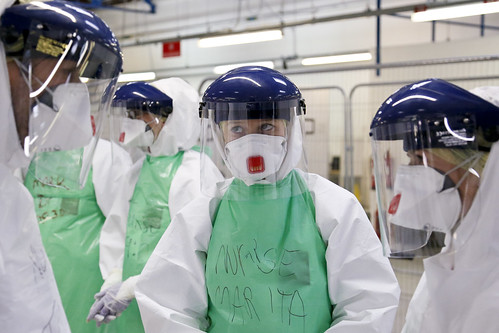
London, October 18, 2014: An internal report revealed that the World Health Organisation (WHO) bungled efforts to halt the spread of Ebola in West Africa. The WHO draft report pointed to serious errors by an agency designated as the international community's leader in coordinating response to outbreaks of disease. The document- a timeline of the outbreak- found thay WHO missed chances to prevent Ebola from spreading soon after it was first diagnosed in Liberia, Sierra Leone and Guinea in March this year, blaming factors including incompetent staff and a lack of information. Its own experts failed to grasp that traditional infectious disease containment methods wouldn't work in a region with porous borders and broken health systems, the report found. The disease has killed more than 4,500 people in Africa. "Nearly everyone involved in the outbreak response failed to see some fairly plain writing on the wall," WHO said in the report, obtained by The Associated Press. "A perfect storm was brewing, ready to burst open in full force." The agency's own bureaucracy was part of the problem, the report found. It pointed out that the heads of its country offices in Africa are "politically motivated appointments" made by the WHO regional director for Africa, Dr Luis Sambo, who does not answer to the agency's chief in Geneva, Dr Margaret Chan. After WHO declared Ebola an international health emergency in August, UN secretary-general Ban Ki-moon stepped in and had the United Nations take overall responsibility for fighting and eliminating the virus, among other things setting up an emergency response mission based in Ghana. Dr Peter Piot, the co-discoverer of the Ebola virus, agreed that WHO acted far too slowly. "It's the regional office in Africa that's the front line," said Piot, interviewed at his office in London. "And they didn't do anything. That office is really not competent." WHO declined to comment on the document, which was not issued publicly, and said that Chan would be unavailable for an interview with the AP. She did tell Bloomberg News that she "was not fully informed of the evolution of the outbreak. We responded, but our response may not have matched the scale of the outbreak and the complexity of the outbreak." Meanwhile, President Obama named Ron Klain, a former chief of staff to vice president Joe Biden, as the administration's point man on Ebola. Source: Hindustan Times, Obama appoints Ron Klain as 'Ebola Czar': An internal
report revealed that the World Health Organisation (WHO) bungled efforts to halt the spread of Ebola in West Africa. The WHO draft report pointed to serious errors by an agency designated as the international community's leader in coordinating response to outbreaks of disease. Meanwhile, Obama moved to step up the US response to the disease, naming Ron Klain, a former chief of staff to vice president Joe Biden, as the administration's point man on Ebola. Klain is a longtime Democratic operative who also served as a top aide to vice president Al Gore. He does not have any medical or public health expertise. But the White House said he would serve as "Ebola response coordinator," suggesting his key role will be to synchronize the actions of many government agencies in combatting the disease. "This is much broader than a medical response," White House spokesman Josh Earnest said, citing Klain's experience in the private as well as public sector and his relationships with Congress. "All of that means he is the right person for the job, and the right person to make sure we are integrating the interagency response to this significant challenge," he said. Republican lawmakers continued pushing the administration Friday to consider restricting travel to the US from the three Ebola-stricken West African countries. But despite Obama's statement Thursday that he was not "philosophically opposed" to such a ban, Earnest affirmed the White House's resistance to such a move. Republican Mike Leavitt, a former health secretary under President George W Bush, said Friday that he sees "lots of problems" with such a ban. While it may seem like a good idea, Bush administration officials who considered it to contain bird flu concluded that it would not work, while raising a host of difficult questions about who would be allowed to travel. Other nations have taken steps to prevent travelers from the affected areas from crossing their borders. The Central American nation of Belize announced that it would immediately stop issuing visas to people from West African countries where Ebola had spread. US officials continued their efforts to contain the fallout from the nation's first reported case of Ebola, Thomas Eric Duncan, a Liberian traveler who died last week at a Dallas hospital. To augment federal resources available in Dallas, the Obama administration said it was supporting or designating a White House liaison as well as a coordinator from the Federal Emergency Management Agency to be stationed in the city. Doctors at the National Institutes of Health in Maryland said that a Dallas nurse, Nina Pham, brought there for Ebola treatment was very tired but resting comfortably Friday in fair condition. "We fully intend to have this patient walk out of this hospital," Anthony Fauci, director of the National Institute of Allergy and Infectious Diseases said. Another nurse to contract Ebola, Amber Vinson, was being treated at Emory University Hospital in Atlanta. Her uncle and family spokesman, Lawrence Vinson, said in a statement Thursday night that she was stable. Despite the stepped up attention to disease, though, World Bank President Jim Yong Kim warned Friday that officials in many countries were focused too much on their own borders. "I still don't think that the world has understood what the possible downside risk is not just to the west African economy but to the global economy. And we are still losing the battle," he said. Source: Article. Nations step up Ebola checks as UN appeals for 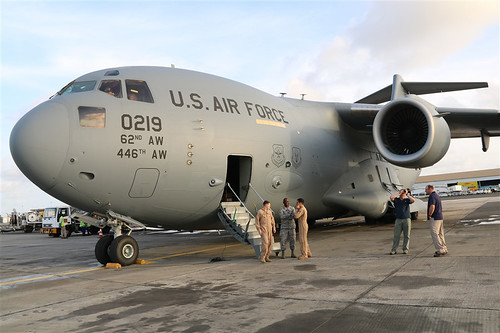
funds: Western countries scrambled to put airport security measures in place Friday amid mounting fear of the spread of Ebola worldwide. New measures to screen travellers for the deadly virus were being considered as the United Nations made an urgent appeal for cash after getting merely $100,000 for a crisis fund to tackle the deadly epidemic. US lawmakers grilled officials over how an infected nurse was allowed to board a crowded flight, and European officials promised a review of how passengers from Ebola-hit countries are screened. UN Secretary General Ban Ki-moon said the call for donations to a UN trust fund had fallen on deaf ears and left them with “a very serious problem” as experts warn that the death toll from the disease may be about to spiral. Despite $20 million of pledges, there was only $100,000 in the reserve fund — reportedly donated by Colombia — he told reporters in New York. With only a quarter of the UN’s overall $1 billion Ebola target pledged, Ban praised the US, Britain and France, but said other countries need to do their share. “Now it is time for other countries that have capacity... to provide financial support and other logistical support.” “We need to turn pledges into action. We need more doctors, nurses, equipment, treatment centres and medical evacuation capacities.” Stinging criticism His predecessor Kofi Annan was even more stinging in his criticism of the world’s response, charging that wealthy countries were slow to tackle the crisis because it began in Africa. “If the crisis had hit some other region it probably would have been handled very differently,” the Ghanaian diplomat told the flagship BBC programme Newsnight. “In fact when you look at the evolution of the crisis, the international community really woke up when the disease got to America and Europe.” Ban said an increase in donations was crucial, with fears growing of a spread beyond Africa as the death toll nears 4,500. “I appeal to the international community to provide the $1 billion that will enable us to get ahead of the curve and meet our target of reducing the rate of transmission by December 1,” he said. Source: Article. China
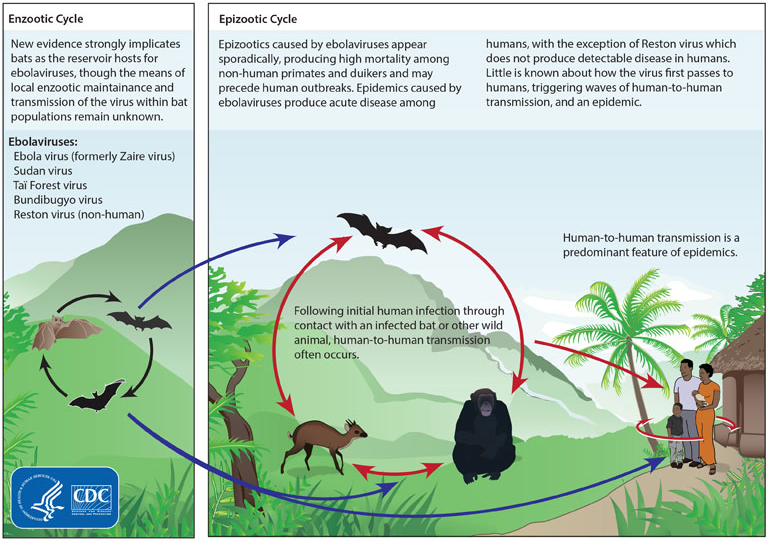 gives $6mn for food in Ebola-hit nations: Beijing, October 20, 2014, China has donated $6 million to help stave off food shortages in the three African countries worst affected by the Ebola virus, the World Food Program announced Monday, part of Beijing's growing assistance to a continent where its companies have become major investors. WFP China representative Brett Rierson said the money is being spent on one month of emergency food rations of mainly rice, lentils and yellow peas for 300,000 people in Guinea, Liberia and Sierra Leone. The Ebola outbreak in those countries has killed more than 4,500 people out of the 9,000 infected and led to widespread transport disruptions, higher food prices and the abandonment of crops and livestock by some farmers fleeing to areas considered safe. The WFP has now raised $59 million of a $179 million appeal for emergency Ebola food aid, with the US contributing $8.8 million and Japan $6 million. Altogether, donors have given nearly $400 million to UN agencies and aid groups, still far from the $988 million requested. China has already dispatched several planeloads of medical material and aid teams to the three worst affected countries, and at least one Chinese pharmaceutical firm is among those working on a vaccine. With the world's second-largest economy and a permanent seat on the UN Security Council, China is beginning to make larger contributions to international aid efforts. China now spends about $5 billion annually in foreign aid, about 55% of which is offered in the form of low-interest loans, according to a government report issued in July. Just over half of the money goes to African countries, helping China build market share in a continent where its companies have found customers for infrastructure, telecommunications and manufactured goods. China is Africa's largest trading partner, with about $200 billion in commerce between them, twice the level of Africa's trade with the United States. Source: Hindustan Times. Ebola risks ‘lost generation’: Liberian leader: The Ebola outbreak in West Africa risks unleashing an economic  catastrophe that will leave a “lost generation” of young West Africans, Liberian President Ellen Johnson Sirleaf said on Sunday, urging stronger international action. The worst epidemic on record of the deadly virus has now killed more than 4,500 people in Liberia, Sierra Leone and Guinea. Eight people have also died in Nigeria and cases have been reported in the United States and Spain. Johnson Sirleaf said the international reaction to the outbreak, detected in March deep in the forests of southern Guinea, was initially “inconsistent and lacking in clear direction or urgency”. She said the international community had woken up to the global health risk posed by the epidemic but called for help from every nation with the capacity to do so, either in funding or medical staff and supplies. “We all have a stake in the battle against Ebola,” she said in an open letter read on the BBC World Service. “It is the duty of all of us, as global citizens, to send a message that we will not leave millions of West Africans to fend for themselves against an enemy that they do not know, and against whom they have little defence.” Johnson Sirleaf said Ebola was having a dire economic impact in the worst affected countries. She said the outbreak had undone much of the recovery achieved in the wake of Liberia’s 1989-2003 civil war. Source: Hindustan Times. PM Narendra Modi intervenes post Ebola alert: The global alert over the deadly Ebola virus has had the Prime Minister stepping in, directing the Cabinet Secretary to take stock of the situation. In a detailed meeting Tuesday, the Cabinet Secretary reviewed preparedness with officials of the ministries of health, civil aviation, home affairs, external affairs and I&B. With the virus fast spreading, the Directorate General of Civil Aviation also issued a circular to all airlines that fly abroad recommending strict vigil. Sources said PM Narendra Modi has been regularly monitoring the situation. Chief secretaries of all state governments have been requested to track and monitor passengers from the affected countries. They have also been asked to strengthen the existing isolation facilities. While so far there is no case of Ebola in India, the health ministry went into a tizzy after an engineer from Nigeria landed with Ebola-like symptoms. Source: Hindustan Times. 3 Indian doctors to help Ebola-hit countries: Two weeks after US President Barack  Obama asked for medical assistance from India for Ebola-hit countries, three doctors from India have agreed to provide their expertise and visit the affected countries. India has now asked the CDC Atlanta for providing protective gear for the medical practitioners so that they can be sent soon. Sources in the health ministry revealed that three government doctors from different states like Bihar, Gujarat and Tamil Nadu who are trained in epidemiological Intelligence Service have given their consent to treat Ebola patients. “The government is working on the modalities like the insurance cover, protective gear etc. so that they can be sent without any delay,” sources said. India is so far among the top five contributors to the UN Ebola response with a contribution of $12.5 million, according to a fact sheet released by US secretary of state John Kerry on Thursday. While, the US with $113.8 million tops the list to the UN Ebola response, followed by the European Union ($55.5 million), Canada ($31.9 million), Netherlands ($21 million) and India with $12.5 million. At a joint news conference with his British counterpart Philip Hammond, Kerry lamented that not many nations have contributed to this global effort to fight the deadly disease. The UN has identified $1 billion in urgent needs, he said. The fact sheet presented by him showed that India has contributed a little over 1 per cent to this. Foreigners entering India to be screened for Ebola: Shobhan Singh, Starting from 
Saturday, all international travellers entering the country will have to undergo a mandatory thermal screening for the Ebola virus disease (EVD). The decision has been taken in accordance with the government of India’s nine-point guideline for EVD preparedness. In a state-level review meeting held at the directorate of health services office on Friday, the authorities took cognisance of the new national guidelines for the disease. Until now, travellers from five West African countries, which have reported an outbreak of Ebola, were being screened. “We are now moving away from the policy of self-declaration to a more proactive approach. All international travellers arriving will now be screened. We are only following the guidelines laid out by the Centre,” said Sujata Saunik, principal secretary, public health, Maharashtra. The decision was taken in light of the cases that were reported outside West African regions, including the two cases from the US over the past two weeks. The state authorities have also asked all airlines to provide them a list of passengers who might be taking a connecting flight from a West African country. “The decision is well meaning. But implementing it on a large scale would require more resources,” said Dr Om Srivastava, infectious disease expert at Jaslok Hospital. Meanwhile, the city airport officials said Ebola screening would be scaled up following the revised directives. “There will be a meeting of all stakeholders on Saturday to discuss how the screening can be conducted without slowing down the movement at the terminal,” said an airport official, requesting anonymity. The national guidelines also call for training of health-care workers across the country. The state will identify a number of trainers who will be sent to Delhi. “We will send some of our senior doctors to Delhi. After completing the training, they will conduct sessions across the state. We will also identify and set up certain district hospitals in the state to tackle the disease,” said Saunik. Source: Article. India opens 24-hour helpline to fight Ebola threat: 09 August 2014: The union ministry of health today opened a 24-hour `emergency operation centre', after the
 World Health Organisation (WHO) on Friday officially declared the outbreak of Ebola disease virus (EVD) in some West African nations as the ''most complex outbreak leading to public health emergency''. The emergency centre, with helpline numbers (011)-2306 1469, 3205 and 1302, is operational from today (9 August). In New Delhi, the Ram Manohar Lohia Hospital has been identified for treatment and management of any case of EVD, union health minister Dr Harsh Vardhan said The minister said the government had, in fact, started taking steps ahead of the WHO declaration. ''There is no cause for panic. We have put in operation the most advanced surveillance and tracking systems,'' he announced. He said there was no reported case in India and one traveller, who landed in New Delhi on 20 July and was confirmed by the WHO as a case of EVD, was found to be healthy. He had been traced to Dwarka in south-west Delhi. He has been provided with all necessary guidelines for self-monitoring and asked to report to the authorities in case of manifestation of symptoms, he added. Source: Article. Ebola neglected because it started in Africa: ex-UN 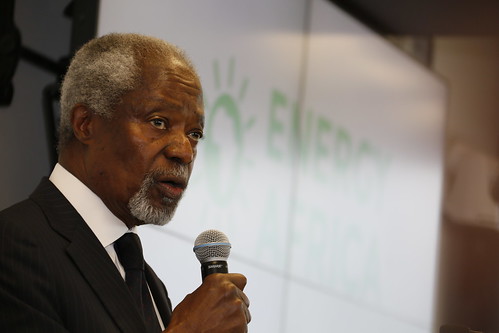
head Kofi Annan: Wealthy countries were slow to tackle the Ebola epidemic as it began in Africa, former United Nations secretary general Kofi Annan has said in tough criticism of the response to the crisis. "I am bitterly disappointed by the response... I am disappointed in the international community for not moving faster," Annan told the flagship BBC programme Newsnight on Thursday. "If the crisis had hit some other region it probably would have been handled very differently. In fact when you look at the evolution of the crisis, the international community really woke up when the disease got to America and Europe." The Ghanaian diplomat, who led the United Nations for a decade until 2006, said it should have been clear that the spread of the virus from its epicentre in western Africa to countries overseas was only a matter of time. It has since been transmitted to a nurse in Spain and two nurses in the United States who were treating patients who had contracted the disease in Africa. "I point the finger of blame at the governments with capacity... I think there's enough blame to go around," Annan said. "The African countries in the region could have done a bit more they could have asked for help much faster and the international community could have organised ourselves in a much better way to offer assistance." "We didn't need to take months to do what we are doing today." Annan defended the World Health Organisation, which has been criticised for not responding quickly enough to the worst ever epidemic of the disease, which began in Guinea before spreading to Liberia and Sierra Leone. The Nobel peace prize laureate said that the WHO, which predicts that the infection rate could reach 10,000 a week by December, was aware of the risk of the disease but relied on governments to give them the resources to act. "Countries are saturated with demands and they are not always able to prioritise as effectively as they should. I think we took our eyes off the ball," Annan said. The WHO on Thursday said it was ramping up efforts to help 15 African countries stop the spread of the virus, as Europe prepares to coordinate screening of passengers from affected countries. The outbreak has killed 4,493 people from a total of 8,997 cases as of Sunday, according to WHO. Source: Hindustan Times. Centre steps up Ebola watch, puts drill in place: The government on Thursday ordered a more

extensive drill and also asked states to step up surveillance for Ebola that has ravaged West Africa and also appeared in US and some European countries. Thermal or body temperature scanners at airports, training for state health officials, Ebola testing laboratories in 10 cities and screening at all entry points were part of the protocol conveyed to states, sources said. “The US is known for its stringent screening process, and if the virus can reach there, it can reach anywhere, which is why there’s no room for complacency,” health minister Harsh Vardhan said. “Just because there is no reported cases of Ebola so far in India does not mean it will never reach us,” the minister, who is not in Delhi, cautioned. Cabinet secretary Ajit Seth, the country’s top officer, called a meeting of senior officials of the Centre and all the 19 states that have international airports and sea ports on the directions of Prime Minister Narendra Modi. The meeting was called after WHO warned that West Africa could see up to 10,000 new Ebola cases a week by December. The worst outbreak of the deadly virus since its discovery in 1976 has killed more than 4,400 people, mainly in Liberia, Sierra Leone and Guinea. The US had reported two cases. India has managed to escape the virus, so far. More than 22,000 passengers had been screened for Ebola in the country by October 15, a source said. Fifty-six of them were identified as high risk, seven as medium risk while the others were categorised as low risk, a statement release by the government said. Low-risk passengers are given general advice while medium and high-risk passengers are kept under observation — states keep a track of them — for a month. Their blood samples are tested and so far none have returned positives. “The Centre has communicated a detailed protocol for states to deal with Ebola,” the statement said. A tracking system has been put in place. The Centre will give 50,000 pieces of protective gear to states. Secretaries of home, shipping and representatives of department of health research, civil aviation and external affairs attended the meeting. States, on their part, said they had identified hospitals and isolation wards for Ebola treatment. These facilities will be inspected by teams sent from the Centre. The minister will review the preparedness on October 21. Source: Hindustan Times. 21-day isolation for patients with Ebola may not be enough: study:
"Aeromedical Biological Containment System (ABCS)" by Centers for Disease Control and Prevention - http://www.wired.com/2014/08/inside-the-flying-quarantine-used-to-transport-ebola-patients/. Licensed under Public Domain via Commons.
Shobhan Singh, Hindustan Times, An international study has questioned the incubation period of 21 days for the ebola virus disease (EVD), fixed by the World Health Organization (WHO) and the Centers for Disease Control and Prevention (CDC), United States. At present, a person who has been in contact with people infected with Ebola are quarantined for 21 days. The study, published on Tuesday in Plos Current, a medical journal dedicated to infectious diseases outbreak, suggests that 21 days may not be enough to completely prevent the spread of the virus. Experts say there is a fair chance someone could be infected even after the 21-day quarantine. Dr Charles Hass, the author of the study, said there could be up to a 12 % chance of a person being infected even after the 21-day quarantine. “While the 21-day quarantine value, currently used, may have been based on interpretation of data from the previous two outbreaks of EVD, this work suggests reconsideration is in order and that 21 days might not be sufficiently protective of public health,” Haas said in his study. The first EVD outbreak was reported in 1976 in Zaire and then in 2000 in Congo in West Africa. The current outbreak in West Africa has reported 8,997 confirmed, probable, and suspected cases in seven affected countries – Guinea, Liberia, Nigeria, Senegal, Sierra Leone, Spain, and the USA – as of October 12. As many as 4,493 people have died because of the disease, according to WHO. “The study raises a very critical concern about the disease and its subsequent management. A lot still remains unknown about Ebola. As far as 21 days of incubation is concerned, it applies to only a certain set of bodily fluids,” said Dr Om Srivastava, infectious disease expert at Jaslok Hospital. “Sperm can contain the virus for a period of three to six months even after a person has been cured of EVD. The 21-day quarantine period remains ambiguous and we need more research to conclusively establish its basis,” added Dr Srivastava. Source: Hindustan Times. Ebola escalation could trigger major food
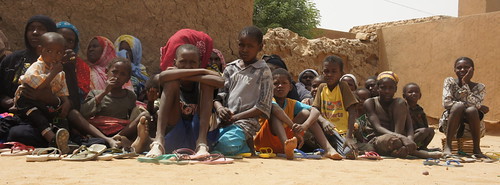 crisis: The global famine warning system is predicting a major food crisis if the Ebola outbreak continues to grow exponentially over the coming months, and the United Nations still hasn't reached over 750,000 people in need of food in West Africa as prices spiral and farms are abandoned. On the eve of World Food Day on Thursday, UN agencies and non-governmental organizations are scrambling to scale up efforts to avert widespread hunger. "The world is mobilizing and we need to reach the smallest villages in the most remote locations," Denise Brown, the UN World Food Program's regional director for West Africa, said in a statement Wednesday. "Indications are that things will get worse before they improve. How much worse depends on us all." WFP has said it needs to reach 1.3 million people in need in hardest-hit Liberia, Sierra Leone and Guinea. So far, the UN agency has provided food to 534,000 people, and it expects to reach between 600,000 and 700,000 this month, Bettina Luescher, WFP's chief spokesperson in North America, told AP. "And we are working hard to reach and scale up to 1.3 million eventually." WFP is providing food to patients in Ebola treatment centers, survivors of the virus who have been discharged, and communities which have been quarantined or have seen widespread transmission, including the families of those affected. It is also helping with logistics and is managing the UN Humanitarian Air Service between the three affected countries and nearby Dakar, Senegal and Accra, Ghana to help humanitarian workers rapidly deploy to the field. "We are assessing how families are coping as the virus keeps spreading," Luescher said. "We expect to have a better understanding of the impact of the Ebola outbreak on 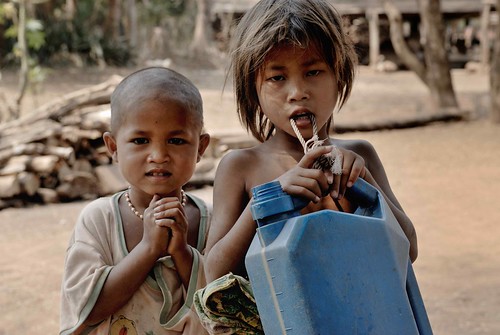 food availability and farming activities by the end of October." WFP said its first survey using mobile telephones showed that people living in the Kailahun and Kenema districts of Sierra Leone - where most Ebola cases have been reported - are finding it harder to feed their families than people in other parts of the country and are resorting to more desperate measures to cope. More than 80% of people in those areas said they ate less expensive food, and 75% reported that they have reduced the number of daily means and were serving smaller portions. Kanayo Nwanze, president of the UN International Fund for Agricultural Development, said Monday that up to 40% of farms have been abandoned in the worst-affected areas of Sierra Leone and there are already food shortages in Senegal and other countries in West Africa because regional trade has been disrupted. He said preliminary reports suggest that "trade volume in these markets is half of what it was at this time last year." Andrea Tamburini, CEO of the non-governmental organization Action Against Hunger which operates in the hardest-hit West African countries, said in an interview Wednesday that his two main concerns are the spike in food costs and the shortage of manpower due to restrictions on movement. This has led to farmers abandoning their crops to seek refuge in locations considered less exposed to the Ebola virus, he said. The UN Food and Agriculture Organization said that in Lofa County, the worst affected rural county in Liberia, the price of food and other commodities increased from 30% to 75%, just in August. Action Against Hunger said the price of cassava - a key staple - increased by almost 150% in the Liberian capital, Monrovia, during the first week in August. Tamburini said his organization will be running a survey to watch malnutrition rates but giving farmers "seeds and tools will definitely be there as a first step." The Famine Early Warning Network known as FEWS NET said in an Oct. 10 report that if the number of Ebola cases reaches 200,000-250,000 by mid-January, large numbers of people in the three worst-affected countries would face moderate to extreme food shortages. FEWS NET said that in this scenario, traders' fears of contracting Ebola and restrictions on movement would severely disrupt the availability of food on local markets, contribute to a significant drop in household incomes, and lead to food shortages at local markets. "Contingency planning for an expanded emergency food assistance response is urgently needed given that the size of the food insecure population could be two to three times higher than currently planned," it said. FEWS NET was created in 1985 after devastating famines in East and West Africa by the US Agency for International Development. It provides analysis to help government decision-makers and relief agencies plan for and respond to humanitarian crises. Source: Hindustan Times, Researchers have identified a new Ebola drug target that will enable the discovery of therapies with the potential to treat any future epidemic, even if new virus strains emerge. Universal Ebola drug target identified: Researchers have identified: a new Ebola drug target that will 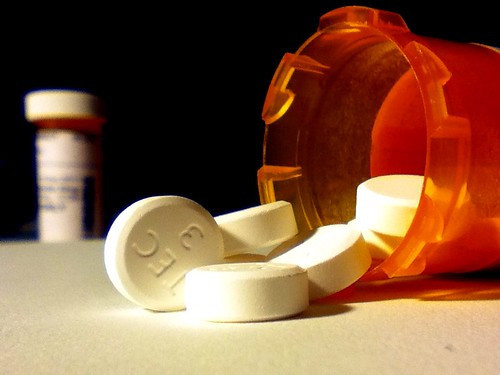 enable the discovery of therapies with the potential to treat any future epidemic, even if new virus strains emerge. University of Utah biochemists produced a molecule, known as a peptide mimic, that displays a functionally critical region of the virus that is universally conserved in all known species of Ebola. This new tool can be used as a drug target in the discovery of anti-Ebola agents that are effective against all known strains and likely future strains. The peptide mimics a highly conserved region in the Ebola protein that controls entry of the virus into the human host cell, initiating infection. The researchers were able to demonstrate this peptide target is suitable for use in high-throughput drug screens. These kinds of screens allow rapid identification of potential new drugs from billions of possible candidates. Current experimental drugs generally target only one of Ebola's five species. "The current growing epidemic demonstrates the need for effective broad-range Ebola virus therapies," said Dr Tracy R Clinton, lead author on the study. "Importantly, viral sequence information from the epidemic reveals rapid changes in the viral genome, while our target sequence remains the same. "Therefore, our target will enable the discovery of drugs with the potential to treat any future epidemic, even if new Ebola virus strains emerge," Clinton said. Ebola is a lethal virus that causes severe hemorrhagic fever with a 50% to 90% mortality rate. There are five known species of the virus. Outbreaks have been occurring with increasing frequency in recent years, and an unprecedented and rapidly expanding Ebola outbreak is currently spreading through several countries in West Africa with devastating consequences, researchers said. There are no approved anti-Ebola agents, but a number of promising experimental drugs are being aggressively advanced to clinical trials to address the current crisis. "Although the current push of clinical trials will hopefully lead to an effective treatment for the Zaire species causing the present epidemic, the same treatments are unlikely to be effective against future outbreaks of a different or new Ebola species," said Debra Eckert, research assistant professor of biochemistry. "Development of a broadly acting therapy is an important long-term goal that would allow cost-effective stockpiling of a universal Ebola treatment," Eckert added. The study was published in the journal Protein Science. Source: Hindustan Times. Ebola toll passes 4,000 as fears grow worldwide: The death toll 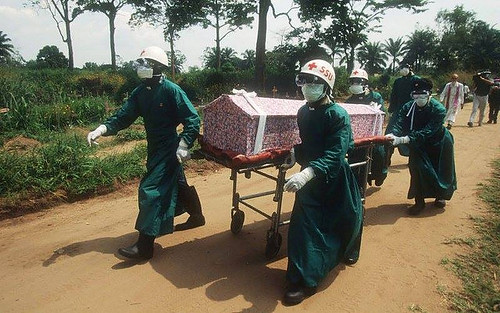
from Ebola has passed 4,000, the World Health Organization said on Friday, while a Madrid nurse was fighting for her life and authorities worldwide tried to prevent panic over the deadly disease spreading. The WHO said 4,033 people have died from Ebola as of October 8 out of a total of 8,399 registered cases in seven countries. The sharp rise in deaths came as the UN said pledges of aid to fight the outbreak have fallen well short of the $1 billion needed. Beyond west Africa, where almost all of the deaths have occurred, fears grew about the worst-ever Ebola epidemic. From Australia to Zimbabwe, and Macedonia to Spain, people who showed signs of fever or had recent contact with Ebola victims were whisked into isolation units or ordered to stay in their homes. False reports of infections forced Spanish police to call for calm, while in France some public buildings outside Paris were briefly closed after a scare. Authorities warned that hoaxes could trigger panic as a man was taken off a US flight by a bio-hazard team after he sneezed and reportedly said, "I have Ebola. You are all screwed." Serious concerns remained in Spain over how the virus could have spread in the country's main isolation hospital. Healthcare workers told AFP the quarantine floor of Carlos III hospital in Madrid was shut last year as a result of spending cuts and only re-opened for two missionaries who were flown back with the disease in August. Prime Minister Mariano Rajoy visited the hospital where 44-year-old nurse Teresa Romero was infected, and where she was in a "stable but serious" condition on Friday. Doctors there took in seven more patients for observation late Thursday, while Madrid's regional leader said Romero, who caught the haemorrhagic fever while caring for the missionaries, was at "serious risk" of dying. Her husband and 12 other people, most of them medical staff, were also under observation, though a

male nurse had been discharged, the hospital said. Ebola staff 'stressed': In a sign of the stress at the hospital, where the media are camped out, some staff did not show up for work on Friday. "There are fewer staff signing up to help," said one nurse caring for Romero, Charly Manuel Torres, referring to voluntary extra cover at the hospital. "We are very stressed. We are working under a lot of pressure." The United Nations and leaders of the Ebola-stricken nations of Guinea, Liberia and Sierra Leone pleaded for greater help for the frontline of the disease in Africa. UN Deputy Secretary General Jan Eliasson said only a quarter of "the one billion dollars sought" to combat the disease had been pledged. He also appealed for doctors, nurses and other health care personnel to come forward to work in desperately needed treatment centres in west Africa. In Liberia, where the official death toll was put at 2,316 by the WHO on Friday, the government said it had banned journalists from Ebola clinics, arguing it was to protect patients' privacy. The move came as nurses at the largest government Ebola clinic in the capital Monrovia staged a "go slow" to demand hazard pay, defying a request by UN health officials to avoid industrial action during the crisis. Alerts abound: In France a public building was briefly evacuated in a Paris suburb on Thursday when an African man felt ill. Earlier, the arrival of a group of schoolchildren from Guinea had sparked panic at a French school. Ebola was ruled out in both cases. In other Ebola alerts, Macedonia quarantined people who had come into contact with a Briton who died on Thursday after exhibiting Ebola-like symptoms. Australia
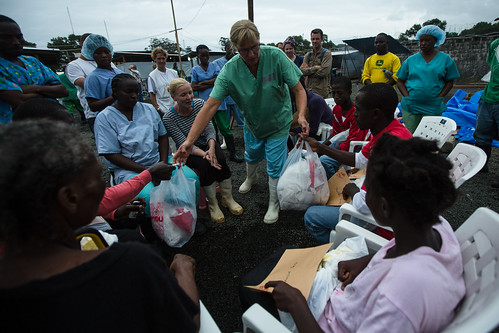
said it had tested 11 people including a Red Cross nurse returned from Sierra Leone, while a 47-year-old Guinean suspected of having the disease was hospitalised in Brazil. The US, Canada and Britain boosted screening at major airports, while a team in protective gear was sent aboard a US Airways flight headed from Philadelphia to the Dominican Republic after a man on board reportedly said he had Ebola. Prevent the next 'AIDS' Ebola's spillover into the United States and Europe has raised fears of a wider outbreak. The US Centers for Disease Control and Prevention predicted the number of cases could mount to 1.4 million by January unless strong measures are taken to contain the disease. At the annual meeting in Washington of the International Monetary Fund and the World Bank on Thursday, African, US and UN officials pleaded with donor nations to step up aid. UN Secretary-General Ban Ki-moon said resources to support the fight must be increased 20-fold. "Cases are growing exponentially," Ban said. "Do not wait for consultation. Just take action." "We have to work now so that it is not the world's next AIDS," CDC Director Tom Frieden warned at the meeting. "I would say that in the 30 years I've been working in public health, the only thing like this has been AIDS," he said, adding that there was a "long fight" ahead. President Ellen Johnson Sirleaf of Liberia, speaking via video link from Monrovia, said support should include "compensation to healthcare workers who, for fear of the risk involved, have refused or are reluctant to return to work".Source: Hindustan Times. Ebola the 'most serious' health emergency in years: World leaders: The Ebola epidemic is "the most serious international public
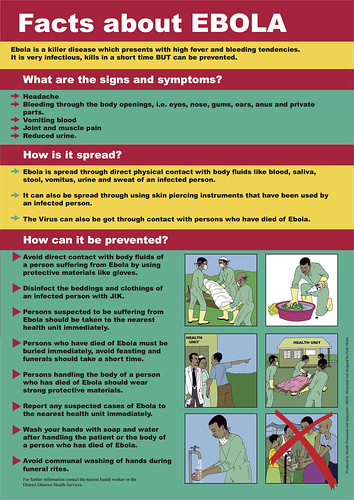 health emergency in recent years", British, US, French, German and Italian leaders agreed in a conference call on Wednesday. A 75-minute video conference call between British Prime Minister David Cameron, French President Francois Hollande, German Chancellor Angela Merkel, Italian Prime Minister Matteo Renzi and US President Barack Obama focused on cooperation to fight the outbreak, a spokesperson for Cameron said. Read: "Leaders agreed that this was the most serious international public health emergency in recent years and that the international community needed to do much more and faster to halt the rise of the disease in the region," the British PM's office said in a statement. "Each leader set out what they are doing to help the countries affected and then discussions focused on how to improve coordination of the international effort." Cameron proposed that plans to tackle the disease could be decided at a Friday summit in Milan between European and Asian leaders and a European Council meeting next week. The call comes after reports that a second healthcare worker in Texas in the United States tested positive for Ebola after caring for a Liberian patient who died of the virus in Dallas. Watch: Airport screening expanded in US after Ebola patient dies The United Nations also warned Ebola was  outpacing efforts to combat the disease and said the world should dramatically expand the fight against the tropical fever, which has killed nearly 4,500 people this year, mainly in Liberia, Sierra Leone and Guinea. In a unanimously adopted statement, the 15-member body warned that the world's response "has failed to date". Cameron said that he would welcome any other countries who wanted to contribute to British efforts to fight the disease in Sierra Leone, and would discuss cooperation with Italy. The discussion identified priorities of improving coordination of international efforts, increasing spending and trained personnel working the region affected, and evacuation procedures for workers infected with the disease. The leaders also discussed the fight against the Islamic State group in Iraq and Syria and peace efforts in Ukraine. The leaders said "the international coalition was making progress" in Iraq, but that more should be done to train local forces in Iraq and Syria to fight the group. On the topic of Ukraine, the leaders agreed that Russia should respect a ceasefire and stop a cross-border flow of weapons and come to an energy supply agreement in Ukraine. Russian President Vladimir Putin and Ukrainian leader Petro Poroshenko are to meet in Milan on Friday to try to settle a disagreement over gas supplies and broker an end to months of conflict in east Ukraine. Ebola death toll close to 4,500:  WHO Almost 4,500 people have died in the Ebola epidemic that broke out in west Africa at the start of the year, according to fresh figures released Wednesday the World Health Organization. The WHO said that as of October 12, 4,493 people have died from Ebola out of a total of 8,997 registered cases in seven countries. The last official WHO toll, valid to October 8, put the figures at 4,033 dead from 8,399 cases. The seven countries are split into two groups by WHO. The first includes Guinea, Liberia and Sierra Leone -- by far the worst-affected nations. The second includes Nigeria, Senegal, Spain and United States, which have seen a small number of highly isolated cases. Liberia has been hardest-hit, with 4,249 cases and 2,458 deaths, followed by Sierra Leone with 3,252 cases and 1,183 deaths. Guinea, where the epidemic originated in December, has seen 1,472 cases and 843 deaths. Health workers continue to pay a heavy price as they battle the epidemic, with 236 deaths out of 427 cases across the countries. A total of 96 health workers have died in Liberia, 95 in Sierra Leone, 40 in Guinea, and five in Nigeria. Nigeria's overall toll remained unchanged at eight dead from 20 cases. WHO has said it will be declared Ebola-free on October 20 if it has no further cases. In the United States there have been two cases, one of them fatal. Spain has one case of infection. The toll remained unchanged in Senegal with one case. In the Democratic Republic of Congo, hit by a separate strain of Ebola from the one raging in west Africa, the WHO said there have been 71 cases and 43 deaths up to October 7. Source: Hindustan Time. Texas health care worker tests positive for Ebola: Yashwant Raj, Hindustan Times: In a first case of  transmission of Ebola in the United States, a Dallas, Texas health-care worker has tested positive for the virus, health authorities said on Sunday. The worker was employed at the same Dallas hospital where a Liberian national died earlier this week of Ebola, which he had contracted on a recent visit to Liberia. The Dallas health-care worker, who has become the second case of Ebola in the United States, is the first case of transmission of the virus on American soil. The person caught the virus despite taking all necessary precautions. “This individual was following full CDC (Centers for Disease Control and Prevention) precautions,” a Texas health official told The New York Times. “Gown, glove, mask and shield,” the official added. Health authorities have put 48 people under observation for possible exposure to the virus through contact with the Liberian man, Duncan E Smith, including his family and friends. There is now also concern for the safety of those battling the outbreak in the three west African nations hit the hardest — Sierra Leone, Liberia and Guinea. Nearly 4,000 US troops and personnel from other nations are in various stages of deployment to help those countries deal with an outbreak that is now being compared to AIDS. Smith, who became the first US Ebola case, contracted the virus while helping an effected person in Liberia. He arrived in the US on September 19, with no apparent symptoms. He reported his symptoms first on September 24, but he was not tested for Ebola despite his travel history. When he finally went under treatment, it was too late. Vigilance has been stepped up since. Within hours of Smith’s death, US authorities announced screening of passengers from the three west African countries at five international airports, with interviews. Source: Hindustan Times.  Second Ebola case in US, health worker tested positive. A second care provider has tested positive for Ebola at a Texas hospital where a man died last week, becoming the latest victim of an outbreak said to be “winning the race” worldwide. The health care worker, who tested positive on Tuesday, was part of the team that worked on the Liberian man, Duncan E Smith, who died in that hospital last week. Nina Pham, a nurse from the same team, became the first case of transmission of the dreaded disease on American soil — Smith was infected in Monrovia, Liberia. Both care providers had taken all precautions laid down by the Centers for Disease Control and Prevention, and that has puzzled, and angered, health officials and workers. “We are looking at every element of our personal protection equipment and infection control in the hospital,” Dr. Daniel Varga of Texas Health Resources, which oversees the health where these cases are being treated, told The New York Times. The outbreak has claimed 4,024 lives worldwide, according to WHO, with the number of reported cases put at 8,376 yet, most of them in Sierra Leone, Guinea and Liberia. “Ebola got a head start on us,” Anthony Banbury, head of the UN mission on Ebola, told the Security Council in a briefing through video link on Tuesday. “It is far ahead of us, it is running faster than us, and it is winning the race. If Ebola wins, we the peoples of the United Nations lose so very much…,” he added. Banbury, who is leading the UN mission from Ghana, told the council that Sierra Leone and Liberia continue to show an “upward trend” in new cases. The situation in Guinea appears to be “more stable”. He said there was an urgent need for more diagnostic laboratories, transport support, and funding to help with operation logistics. “Time is our biggest enemy,” he warned. “We must use every minute of every day to our advantage and that is what UNMEER (the UN mission) is doing. Ebola-infected nurse gets emotional before her hospital transfer:
A newly released video by Texas Presbyterian Hospital shows Nina Pham, one of the two nurses who contracted Ebola getting emotional and speaking from her bed before being transferred to Maryland for further treatment. The nurse was the first to have contracted Ebola after treating an infected Liberian man. Source: Hindustan Times. 2 of 4 new Ebola suspects in Spain test negative: Health Ministry said

infections are under control Madrid: Two of four new Ebola suspects admitted to hospitals in Spain have tested negative in a first round of tests, officials said Friday. The government's Ebola monitoring committee said on its official Twitter account that the two were a person who arrived on an Air France jet that was isolated at Madrid's airport Thursday and a person who travelled in the same ambulance used to hospitalise infected Spanish nursing assistant Teresa Romero on October 6. Both had developed fevers. They will be tested a second time within 72 hours. Two others, a missionary who came down with a fever after returning from Liberia and a Red Cross health worker who recently worked with Ebola patients in Sierra Leone, were also to be tested. Health Ministry spokesman Fernando Simon said Romero's infection was almost under control & there was rising less reason to be worried. Source: Article US steps up Ebola vigil, but won't stop travel to Africa: Yashwant Raj, Hindustan Times, The US on Wednesday announced new steps to counter Ebola as concerns mounted about new infections, but it resisted growing demand for ban on travel to and from west Africa. No country has stopped travel to the three west African nations hit the hardest by the outbreak — Liberia, Sierra Leone and Guinea — described as the worst since AIDS. If the US does, as demanded mostly by conservative critics of the president, it could, experts fear, trigger a worldwide boycott that will be even more devastating for those countries. President Barack Obama ordered, instead, a significantly marked up first response to every fresh case, in a direct message to health authorities who botched their first case. Duncan E Smith, the Liberian man who became the first person to die of Ebola in the US, was turned away by the same hospital when he first reported sick with linked symptoms. As soon as someone is diagnosed with Ebola, President Barack Obama said, CDC — the top US agency for fighting such emergencies — will respond with all it has. “We want a rapid
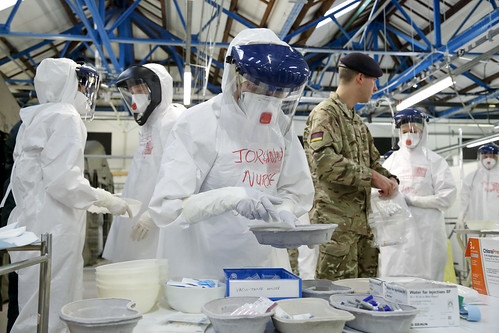 response team, a SWAT team, essentially, from the CDC to be on the ground as quickly as possible -- hopefully within 24 hours,” said the president. Speaking after a meeting on the government’s response to the outbreak, Obama tried to reassure a worried nation that, one, the situation was not as bad as it appeared. “I shook hands with, hugged, and kissed not the doctors, but a couple of the nurses at Emory because of the valiant work that they did in treating one of the patients,” Obama said, He survived, and was doing fine. And, two, if the US did everything by the book, according to laid procedures, the “likelihood of widespread Ebola outbreaks in this country are very, very low”. The president’s conservative critics, however, believe not enough is being done to combat the disease. Why can’t the administration strike at the very root of the problem. “Common sense dictates that we should impose a travel ban on commercial airline flights from nations afflicted by Ebola,” Texas senator Ted Cruz told Dallas News. The CDC has opposed that drastic measure. A ban would leave uninfected people at risk of exposure from patients driven underground (by the ban), argued CDC chief Tom Frieden in a piece on Fox News. Remark: Open images in new tab or window to find it’s source of sharing, also get connect with each source of sharing articles via specified links. Our Sites unique and other links (if there will be any) are available just for the requirement of the subject not for increasing circulations, as its all for very special issues, personalities, social concern, etc, not for any kind of promotion. |





